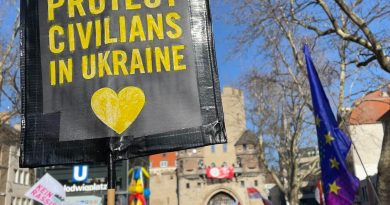Focus on Freedom of Expression: China
By Angelo Piro
Staff Writer
Ai Weiwei, the controversial Chinese artist famous for his work in protest of the current Chinese government, is no stranger to confronting powerful forces. However, while he is used to butting heads with his country’s strong central government, he may have finally met his match: Lego.
In an unexpected turn of events, Weiwei was denied a request for a bulk order of the famous building bricks from the Danish toy company for a new project, the first installment set to open at the National Gallery of Victoria in Melbourne in December.
Posting on his Instagram account, Weiwei said, “In September Lego refused Ai Weiwei studio’s request for a bulk order of Legos to create artwork to be shown at the National Gallery of Victoria as ‘they cannot approve the use of Legos for political works.’”
In later posts, Weiwei called Lego’s refusal of the order an act of censorship and discrimination influenced by the Chinese government. According to reports from ArtNet News, Weiwei suggests that the refusal is based on Lego trying to save its relationships with China. Weiwei points to the an upcoming opening of a Legoland in Shanghai. Lego firmly denies the claim.
In a statement issued to the Guardian, a Lego spokesperson made it clear that Lego has never and does not attempt to block the use of its products in projects it hasn’t endorsed. However, it will continue to enforce a policy that it would not aid in political messages by way of bulk orders.
The spokesperson also pointed out that the proposed Legoland in Shanghai is not operated under Lego, but under a British company, Merlin Entertainments. However, Lego does have some important commercial operations emerging in China, as reported by the Guardian, including a new factory that is projected to employ 2000 Chinese workers and open in 2017.
While Lego may claim that it is simply trying to maintain an apolitical stance, Lego bricks have been used in controversial political pieces in the past. In an audacious installation featuring Legos in 1996, Polish artist Zbigniew Libera created a full concentration camp out of the plastic bricks. Lego launched a lawsuit against Libera for claiming his project was “sponsored by Lego.”
Weiwei used Legos in previous installations, most notably a project on Alcatraz Island which featured over a million Lego bricks depicting portraits of various political prisoners and dissidents, like Nelson Mandela and Chelsea Manning.This episode with Lego seems to be a growing occurrence for Chinese and other global artists. As China’s economy grows and the potential of the Chinese market continues to tempt corporate interest, the power they exert on companies will grow as well.
In response to Lego’s decision, state run Chinese newspaper Global Times said as much, writing that, “As China becomes more powerful, commercial organizations and national governments will become more well behaved and more scared to apply a double standard to China,” after calling Lego’s move an appropriate decision and an example of good corporate citizenship.

